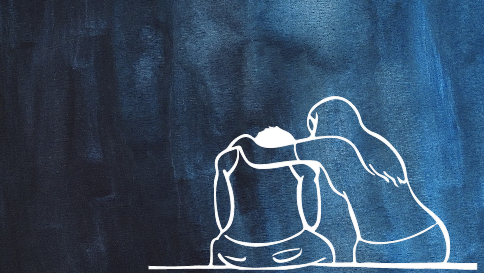Helping Your Loved One that Suffers from Anxiety or Depression Feel Safe

Author: Dr. Julie. Sorenson, DMFT, MA, LPC
Helping a Loved One that is Struggling With Anxiety or Depression
Watching a loved one struggle with anxiety and depression can be difficult. .” If you haven’t experienced anxiety, it may be hard for you to understand what your loved one is going through, or why they can’t just stop being anxious. However, if you can educate yourself on anxiety and depression it can provide you with tools as to how to help your loved one. There are online resources through National Alliance on Mental Illness (NAMI) that could be useful. Someone struggling with anxiety or depression can’t “just snap out of it” and telling someone that is struggling with anxiety to calm down doesn’t make them feel supported.
It is important to acknowledge that you see them struggling and encourage your loved one to work with you to problem solve. Anxiety is the fight, flight, or freeze response often accompanied by irrational thoughts. Imagine living in a stage where you are constantly on high alert because you are worried something will happen.
If you don’t Struggle with Anxiety, it Can Be Confusing
 For people non-affected by anxiety or depression, it can become confusing as to why someone can’t just calm down. So often people that have not experienced anxiety or depression may say just calm down, which can only exacerbate the situation. While the non-affected person may believe they are helping their loved one they could unintentionally make their loved one feel alienated, irritated, and more anxious.
For people non-affected by anxiety or depression, it can become confusing as to why someone can’t just calm down. So often people that have not experienced anxiety or depression may say just calm down, which can only exacerbate the situation. While the non-affected person may believe they are helping their loved one they could unintentionally make their loved one feel alienated, irritated, and more anxious.
Avoid saying the following things to your loved one:
- Calm down
- Just don’t think about it
- Get over it
Say these things instead:
- How can I help
- It sounds stressful, I am here to listen.
- I am here for you
- You are not alone
A few strategies that can help your loved one are:

How to Help Your Loved One
Acknowledging your loved one’s anxiety is a great place to start. Remember to ask them what is helpful for them. They may have their tools to assist in calming them down that they can teach you at a time when they aren’t experiencing high emotions. Paraphrase what they are saying to let them know you are actively listening to them and want to help. The goal is to help your loved one and support them through their difficult time. Sometimes it can be intimidating to help someone that suffers from anxiety or depression. Your loved one may not be able to explain how they feel could cause them to feel more overwhelmed or embarrassed. Allow your loved one grace if they don’t understand their anxiety, and share articles with them to help them

better understand. Your loved one may feel like they are going crazy, let them know that you don’t see their anxiety as a weakness or flaw. Normalize anxiety, and remind them that a lot of people suffer from anxiety and that it is okay to contact a mental health professional for help. The best thing you can do is be in the moment with your loved one when
they are experiencing the fight-flight or freeze response to their anxiety. Help them concentrate on their breathing.
Make Sure to Take Care of You
Helping someone with their mental health can be exhausting. Make sure that you are taking time for yourself. Remember you can’t put on someone else’s oxygen mask unless you have yours on first. If you are becoming overwhelmed in helping your loved one, know what your limits are. Listen to your body. If it is getting too overwhelming reach out to a mental health professional to give you a platform to discuss the struggles you may have when helping a loved one who is struggling.
